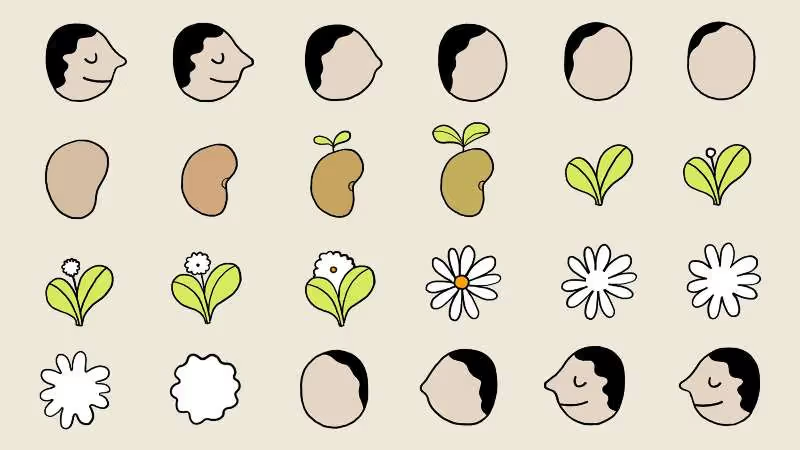“Eroticism reveals to us another world, inside this world. The senses become servants to our imagination, letting us see the invisible and hear the inaudible.” - Octavio Paz
The full meaning of the word Eroticism involves the sense of vibrancy, curiosity, and spontaneity that makes us feel alive, way beyond the mere sexual realm. When we embody our Erotic self, we tune into the worlds around us and within us. We listen a little closer. We touch a little softer. We savor and linger. We observe and embody. Eroticism imbues our experiences with meaning, fosters connection, and—when times are tough—Eroticism is the life force that keeps us connected with our sense of humanity, hope, and joy despite all odds. This life force is fundamental at all stages and in all phases of any relationship. That said, Eroticism is especially important when couples are facing challenges, whether they are coming from inside of the relationship or from external issues such as work stress, climate anxiety, illness, death of a loved one, or a general sense of existential dread.
When we invite Eroticism into our individual lives, particularly by engaging in our five senses, we give ourselves permission to remember a fundamental yet oft forgotten truth: the essential beauty of the world is available to us, always, even in the darkest of times. When we invite Eroticism into our relationship, that container of permission expands around the couple, holding us together by a shared sense of wonder that both grounds and excites us. Eroticism is a counterforce to melancholy, and accessing it can be as simple as tuning into the senses we have available to us.
How Touch Fosters Intimacy
Touch is the first sense that we develop. As babies, touch is how we learn about the world outside of the womb. It's how we self-soothe, sucking our thumbs and twirling our hair to lower our heart rate and cortisol levels and to release oxytocin. As toddlers, we like to touch everything, exploring what textures and temperatures we like and don’t like. We begin to make things—buildings out of hard wooden blocks, forts out of soft sheets and plush pillows, tiny sculptures made of squishy clay that harden over time.
How we tune into our sense of touch as an adult is intimately connected to how we liked to play as a child. As we get older, we graduate to new iterations of the tactical experiences that were so formative in our youth. We self-soothe through massage and masturbation if we can carve out the space and time to do so. We take long hot baths if we can squeeze one in after work. Occasionally, we sleep in on a Saturday, luxuriating with our partner in the soft sheets of our bed. We tend to treat these experiences as special circumstances but each is a fundamental expression of embodying our Erotic self. Prioritizing these tactical experiences can be as simple as creating a small altar of items we like to touch, intentionally staying in bed a little longer with our partner, or taking a barefoot walk together and discussing how the grass feels under our feet. Nothing is better, however, than a touch on the shoulder or hug that wordlessly conveys: I see you. I care about you. I’m excited to be with you. We’re in this together.
Seeing is Believing
In challenging times, our eyes tend to fixate on the aspects of our surroundings that support what we are feeling inside. We notice the mess of the house and the physical objects such as bills or a broken appliance that represent an endless To-Do List. We look at ourselves in the mirror and notice what we wish was different. What would it be like to see ourselves and our environment through a kinder and softer lens?
- What if our home wasn’t simply a messy house but a place where children feel free to play—to make couch cushions into boats and sheets into forts?
- What if our broken appliance was a sign of renewal—that the toaster made wonderful toast until it didn’t, and now it’s time for a shiny new one?
- What if we intentionally chose to see the body in the mirror as the vessel that carries and nurtures us rather than a punching bag?
Our sense of sight is closely connected with how we perceive. Our eyes take in what’s in front of us but our minds create the story. Dreaming, it could be said, is an extension of seeing. Even if the environment in front of us looks like hell, we can always dream of another version and, if we really tune into the smallest, most beautiful details of our life, we can find evidence of that reality's existence.
The Difference Between Hearing and Listening
Any guided meditation begins with a version of the following: “What do you hear? Sirens, birds, cars, people speaking? Don’t try to block it out; simply accept the noise and let it fade to the background.” We all know that’s easier said than done, but there’s a profundity to this exercise: we have some ability to make choices about how we take in the sounds around us—whether to agonize over them or accept them as a part of our experience.
We may not have a choice in what we hear; but we have flexibility in how we listen, and that makes all the difference. This applies to everything that comes to us by way of our ears. With your partner, try:
- Getting as quiet as possible and naming all of the sounds each of you can hear.
- Listening to a favorite album from start to finish, not just in the background while you’re doing something else, but as the main activity.
- Singing a favorite song together and attempting to harmonize or remember all of the words. (Even if it’s not pretty; it’ll be fun.)
- Having a conversation in bed just in whispers. Get close to each others’ ears and speak as softly as possible.
Scent-imental Intimacy
Smell is the most basic of the senses. When we smell something, we know instantaneously if we like it or if we don’t. It’s about biology and chemistry. And smell is deeply connected to memory. The moment we get a whiff of our mother’s perfume, or smell mothballs that remind us of our grandparent’s attic, we are instantly transported. The same is true of our romantic relationships. Ask each other:
- What scent reminds you of our first date?
- What does the air smell like where we live?
- What do I smell like? Really try to narrow it down to three specific notes.
- What meal do we make that excites you from the moment you begin to smell its flavors?
That last question also provides a wonderful window into how tuning into our senses is intimately connected with how we experience desire. Just like our mouth begins to drool when we smell something good cooking, our whole body begins to experience desire when our senses pick up on something that turns us on.
Good Taste
When in doubt, make good food together. Cooking uses all of the senses. We see the beautiful meal, smell it at every stage of cooking, listen to how it boils, crackles, and crunches, touch its textures—and, of course, taste all of its delicious components come together. Cooking also reminds us of our ability to take care of ourselves, to be self-reliant, and to co-create something for each other. These are crucial reminders particularly when we feel deflated or down.
Our sense of taste reminds us to slow down, to savor instead of gobble, to engage in an esthetic experience because it is pleasurable and nourishing. Try this together:
- Split an orange into two halves. Give one half to your partner.
- Roll it around in your palms. Dig your fingernails into its skin—just a little bit.
- Smell the spritz of orange juice that emerges when you do this.
- Take a bite.
- Roll it around in your mouth. Taste it in every corner.
- Observe the brightness, the acidity, then swallow.
- Kiss. Taste the orange on your partner's lips.
If you enjoy this exercise, consider keeping a small bowl of oranges on your kitchen counter. Even when the day is hectic or you're rushing out the door, just seeing them will serve as a reminder to us and our partner: Slow down. Savor. Connect. And make time today to tune into all of our senses—together.








.svg)





